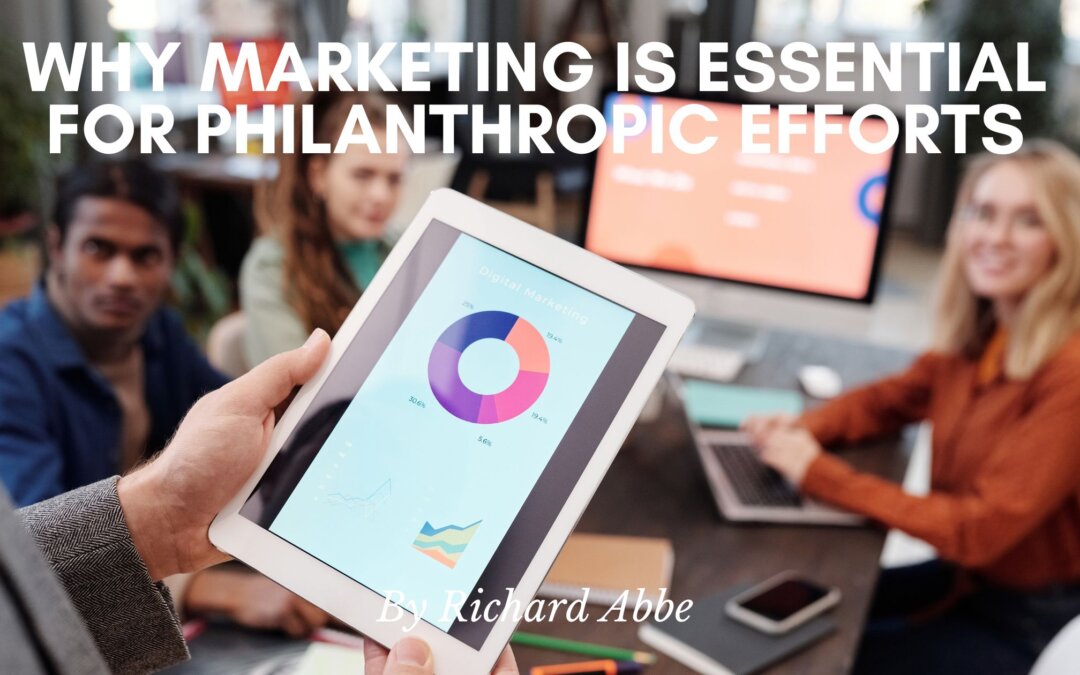Philanthropy has long been a cornerstone of our society, playing a crucial role in addressing various social issues and making the world a better place. However, the landscape of philanthropy has evolved significantly over the years. In today’s digital age, marketing has become essential for philanthropic organizations to amplify their impact, reach a wider audience, and drive positive change. It’s important to understand why marketing is essential for philanthropic efforts and how it can make a significant difference in the success of charitable initiatives.
1. Raising Awareness
One of the primary objectives of philanthropic efforts is to raise awareness about the causes they support. Marketing provides a platform for organizations to tell their stories, share their missions, and highlight the issues they are addressing. Effective marketing campaigns can capture the public’s attention, evoke empathy, and educate people about pressing social concerns.
For example, campaigns like the ALS Ice Bucket Challenge went viral on social media, raising awareness about amyotrophic lateral sclerosis (ALS) and generating millions in donations. This wouldn’t have been possible without a well-executed marketing strategy that harnessed the power of online platforms.
2. Mobilizing Resources
Philanthropic organizations rely on donations and resources to fund their initiatives. Marketing plays a critical role in attracting donors, sponsors, and volunteers. Through targeted marketing campaigns, these organizations can reach out to individuals and businesses that are aligned with their mission and values.
Digital marketing, including email campaigns, social media outreach, and online fundraising platforms, has made it easier than ever for philanthropic organizations to connect with potential supporters. These platforms enable them to engage with a broader audience and encourage regular contributions.
3. Building Trust and Credibility
Trust is paramount in the world of philanthropy. Donors want to be confident that their contributions will have a meaningful impact. Effective marketing can help philanthropic organizations build trust and credibility by transparently showcasing their achievements, financial accountability, and the real-world results of their efforts.
Sharing success stories, testimonials, and progress updates through various marketing channels can reassure donors that their contributions are making a difference. This, in turn, can foster long-term relationships and lead to recurring support.
4. Leveraging Technology and Data
In the digital age, philanthropic organizations can leverage technology and data-driven insights to optimize their strategies. Marketing analytics can provide valuable information about campaign performance, donor behavior, and audience demographics. This data can help organizations refine their messaging, identify the most effective channels, and allocate resources more efficiently.
For instance, A/B testing of email subject lines or social media ad creatives can reveal which messages resonate best with donors, allowing organizations to fine-tune their communications for maximum impact.
5. Promoting Collaboration
Collaboration is a powerful tool in philanthropy. Marketing efforts can bring together multiple organizations, businesses, and individuals with shared goals. Partnerships and joint campaigns can amplify the reach and impact of philanthropic initiatives.
Marketing can facilitate collaboration by creating a platform for organizations to connect, share resources, and promote collective action. For example, campaigns like #GivingTuesday have united nonprofits, businesses, and individuals worldwide to support charitable causes on a single day, leveraging the power of marketing and social media.
6. Measuring Impact
Marketing helps attract resources and enables philanthropic organizations to measure and communicate their impact effectively. Using data and metrics, they can demonstrate the tangible outcomes of their work, from the number of lives improved to the communities transformed.
Transparency in reporting and sharing impact data through marketing channels reinforces the trust of donors and stakeholders, inspiring continued support and engagement.
Conclusion
Marketing is no longer just a business function; it’s an indispensable tool for philanthropic efforts. In today’s interconnected world, effective marketing campaigns can amplify the reach and impact of charitable initiatives, attract resources, build trust, and foster collaboration. By harnessing the power of marketing, philanthropic organizations can drive positive change and create a brighter future for the causes they champion. Marketing isn’t just about selling products or services; it’s about improving the world.

